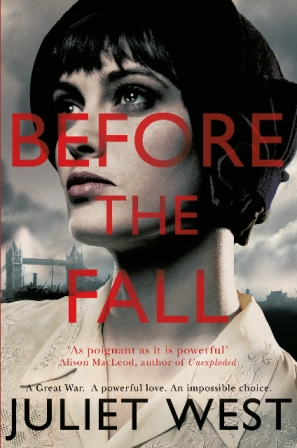
Several years ago I signed up for a creative writing workshop led by the novelist Jill Dawson. We were a quiet group to begin with: pens poised, brows furrowed. Was I the only one feeling nervous? Looking around, I doubted it.
Jill began by telling us: ‘Make writing your friend’. We should create a comfortable and inviting work environment, she said. Cushions and candles are good. Keep a chocolate stash close by. At that moment our nerves evaporated and we were instantly on-side. Jill said we could have chocolate; everything was going to be all right.
I picked up many great tips during the workshop, but over the years - especially in those moments when writing is going badly and you wonder why you’re doing it - Jill’s initial advice has often floated back into my mind. Make writing your friend. Because sometimes writing seems less like a friend than a cruel bully. What kind of friend plays havoc with your self-belief (even after you’ve landed a publishing deal), entices you away from loved ones, keeps you awake at night and leaves you clutching the left side of your face in pain? (I’ll explain that last one later.)
Of course there are times when writing is the palliest pal imaginable, when it makes you feel happy, energised and exhilarated. So how do we tame the bully and butter up the best friend? Here are a few ideas which (usually) work for me…
- Be realistic. At the start of each month, comb through your diary and mark out the days or hours you can dedicate to writing. Try to protect those times as you would any other work or social commitment. You might want to include a wordcount or page target for each writing day. I find it helps to underestimate what I can achieve, then I feel better if I smash the target. So I might aim for 800 words, and feel cock-a-hoop when I hit 1200. A childish trick I know, but it keeps the bully at bay.
- Stop when it’s going well. You won’t always have this luxury if you’re on a tight deadline. But generally it’s a good idea to finish writing at a point where you feel a fizz of excitement about your story. It means you’re interested and intrigued enough to go back when you next have time. Dread can quickly set in if you write simply to watch the wordcount flicker upwards.
- Read. I know – you’ve heard it before. Why is it that every advice list on writing tells you to read, read and read some more? It’s become a cliché because it’s true. If you can’t be bothered to read short stories/novels/poetry, why should you expect anyone to read your own efforts? I can’t think of a successful writer who isn’t also a passionate reader. Reading is definitely your friend. When you read, you learn. Your writing will improve.
- Reward yourself with treats. Apparently there are writers who become so entranced as they work that they forget to eat or drink for hours at a stretch. Personally, I’m always holding out for the next cup of coffee, or a nice sandwich for lunch, or a treat from my chocolate stash (thank you, Jill. I did obey).
- Write regularly… but don’t beat yourself up when you take a break. I don’t subscribe to the ‘write every day’ rule. If you can manage this, that’s wonderful, but it’s not always viable. If you have a sick child, or a deadline for a freelance commission, or family members visiting, it can be impossible to find the time and head space for writing. Don’t feel guilty, but try not to stay away for more than a few days. When you leave a project for an extended period, it can start to seem out of reach, and that’s when the bully begins to whisper and fear sets in.
- Don’t let criticism spoil your day. Not everyone is going to like your work, but that doesn’t mean you’re a bad writer. Imagine how boring it would be if we ALL liked exactly the same books? Of course it’s disappointing to hear negative comments, whether they come from a reviewer, a workshopping colleague or a friend-of-a-friend. If the comment is ill-informed or snide, you can ignore it. If the criticism is constructive - and especially if more than one person picks up on the same point – view it as valuable feedback.
- Step away from your desk. When you’re stuck and frustrated and nothing seems to flow, it can be helpful to physically remove yourself from your screen or notebook. Go for a walk, weed the garden, clean the bathroom sink – whatever - but make sure you stay in the writing zone, keeping your thoughts glued to the work-in-progress. You’ll be amazed how many good ideas strike while you’re busy doing something else.
- Be a masochist. Despite all the above, there are days when you know it’s going to be horrible and you just have to embrace the pain. This might involve deleting carefully-crafted scenes because they don’t add anything to the story, killing off a character who’s turned out to be boring, or revisiting your first chapter yet again because you know it needs more tension. There can be literal pain, too. Sometimes I end up with an ache across the left side of my face, which, it turns out, is the result of subconscious jaw clenching when I’m immersed in writing. The good news is that these periods of deep concentration (between treats) often produce the best work. See? Even the pain can be a friend in disguise.
Juliet West’s debut novel Before the Fall is published by Pan Macmillan, and is also available in audio and large print editions. Find out more on her website, or follow Juliet on Twitter.
Comments